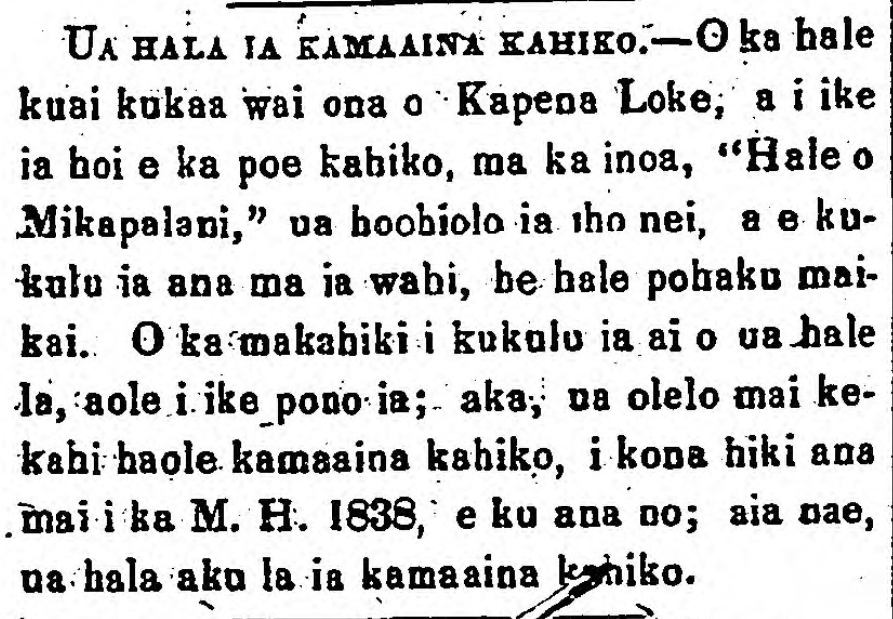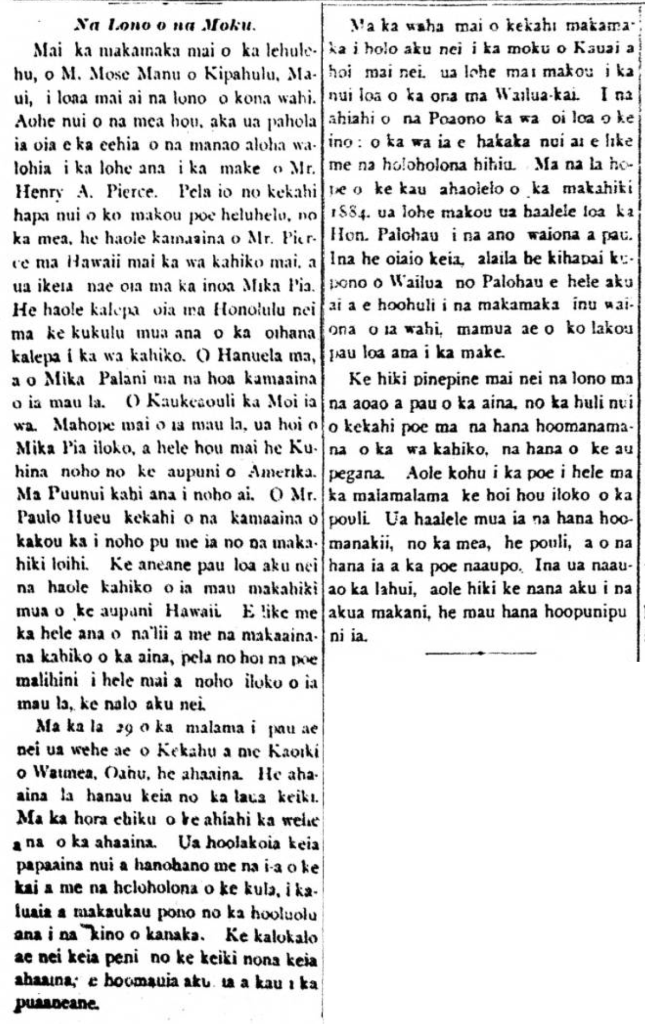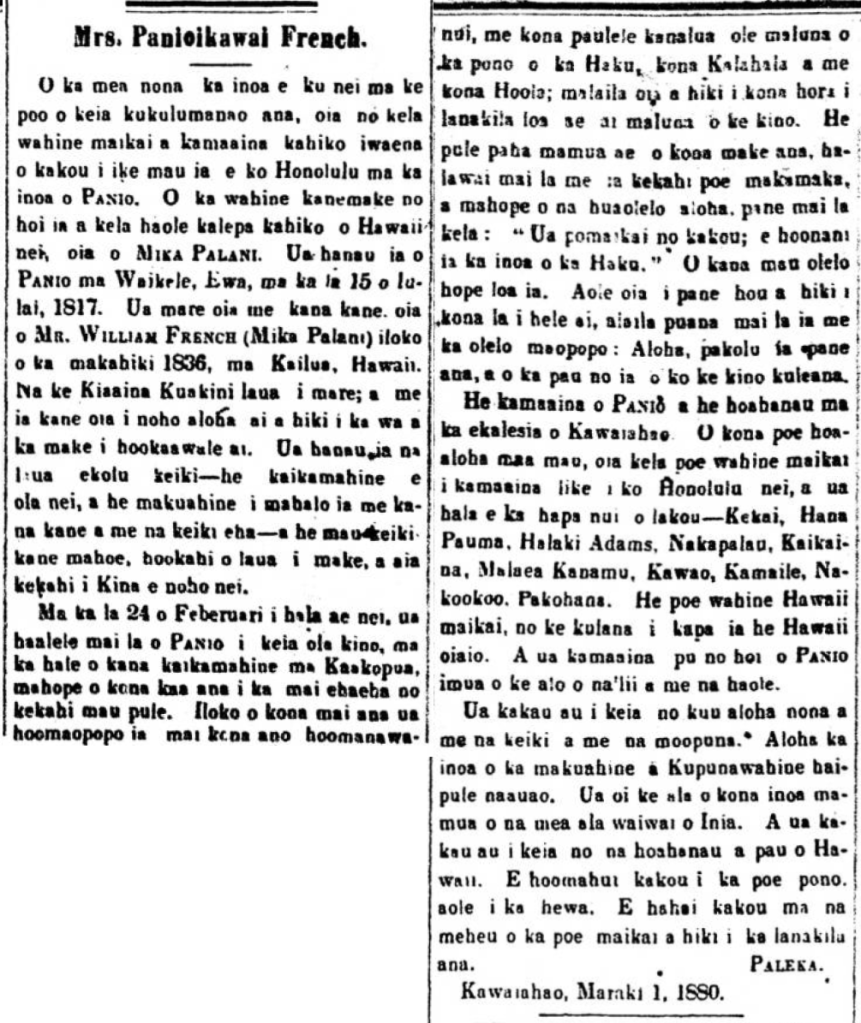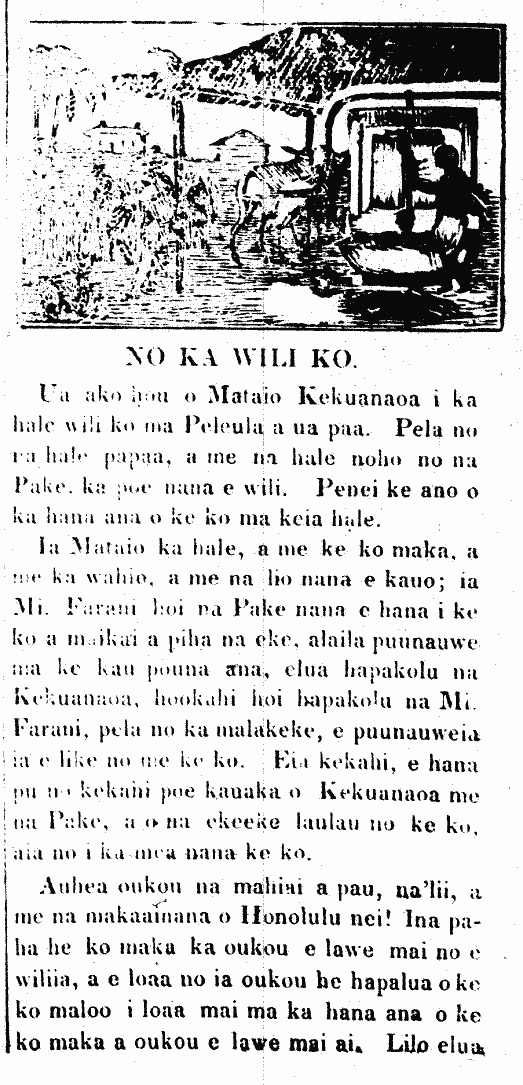Mrs. Panioikawai French.
The person whose name appears at the top of this article is that fine woman and old-time kamaaina amongst we the people who always see her in Honolulu going by the name Panio. She is the widow of the old haole trader of Hawaii nei, Mika Palani. Panio was born in Waikele, Ewa, on the 15th of July, 1817. She married her husband, Mr. William French (Mika Palani) in 1836 at Kailua, Hawaii. Governor Kuakini was the one who married them; and it was with this husband who she lived in aloha with until death separated them. The two of them had three children—a daughter that is still living, and a mother that is admired along with her husband and four children—and twin sons, one who has died, and one who is living in China.
On the 24th of February past, Panio left this life, at the home of her daughter in Kaakopua, after being in pain for several weeks. In her sickness, her great patience was made clear, along with her unwavering faith in the goodness of the Lord, her Redeemer, and her Savior; and she was there until the victorious hour upon her body. She perhaps had a prayer before she died; she met with some friends, and after words of aloha, she said: “We are fortunate; blessed be the name of the Lord.” These were her last words. She did not say anything until the day she left, then she said clearly: Aloha, three times, and her body’s work was done.
Panio was a kamaaina and a brethren of Kawaiahao Church. Her regular friends were the fine women who are also well known here in Honolulu, and most of them have already passed on—Kekai, Hana Pauma, Halaki Adams, Nakapalau, Kaikaina, Malaea Kanamu, Kawao, Kamaile, Nakookoo, Pakohana. They were good Hawaiian women, who are amongst those called true Hawaiians. And Panio was a kamaaina amongst the royal court and amongst the haole.
I write this because of my aloha for her and her children and grandchildren. Beloved is the name of this enlightened devout mother and Grandmother. The fragrance of her name is stronger than the treasured perfumes of India. And I write this for all of the brethren of Hawaii. Let us copy the righteous, and not the wicked. Let us follow in the footsteps of the good until we are victorious.
PALEKA.
Kawaiahao, March 1, 1880.
(Kuokoa, 3/6/1880, p. 4)
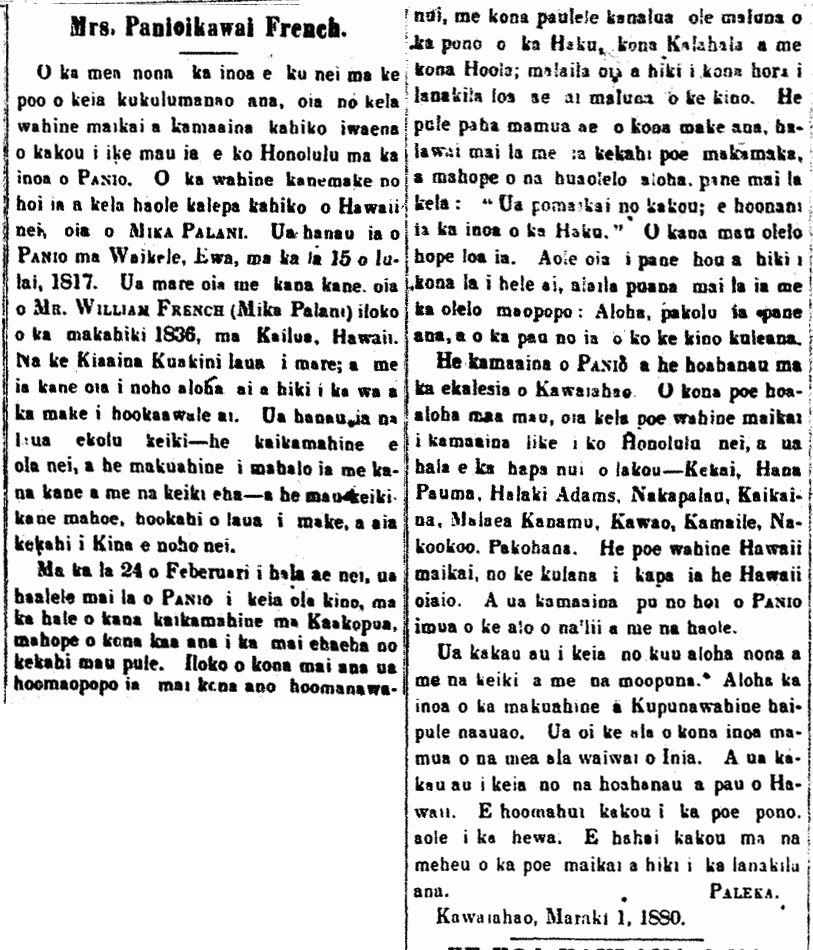
Ka Nupepa Kuokoa, Buke XIX, Helu 10, Aoao 4. Maraki 6, 1880.


